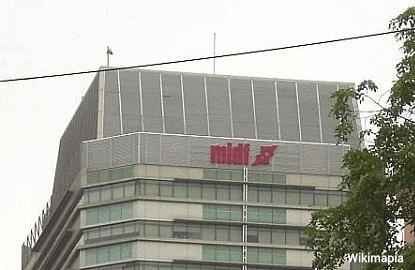
KUALA LUMPUR (June 9): Should the Malaysian government maintain its fiscal consolidation measures and crude oil prices rise to an average of US$55 a barrel next year, MIDF Research said the government has room to reduce the goods and services tax (GST) rate to 5%, and to 4% should crude be at US$75 a barrel.
The research house in a note today said that a reduction in the consumption tax rate should help to boost private consumption, as domestic economy is in need of a support during the time of a slowdown in global trade activity.
“Despite debates among economists on the needs of government intervention in the economy, we opine that fiscal consolidation had the same effect as a contractionary policy,
“With the current economic environment – particularly with the weaknesses in global trade activity, we believe that an expansionary fiscal policy should be employed in order to support domestic economy in the short term,” MIDF Research said.
But the research house noted that there is limited further upside. “While demand continues to see tepid growth, major oil producers have been improving their operating efficiency, bringing down their breakeven cost production level. Thus, more supply is expected to enter the market especially at higher prices.”
MIDF Research is projecting an average price of US$45 a barrel for the whole of 2016.
Crude oil has rebounded by more than 40% from its nadir of below-US$30 level last year, with benchmark spot Brent reaching a new high of US$52.80 at 9:15 am. MIDF Research said that crude oil averaged at US$39 a barrel in the first half of this year, which was US$4 above the top-end range of the government’s assumed oil prices of US$30 to US$35 a barrel in this year’s revised budget.
The government revised its 2016 budget in January of this year. Apart from rejigging its expenses to cover the oil revenue shortfall of up to RM9 billion, it introduced a few measures to stimulate domestic spending. These include a tax relief and an option to reduce employees’ contribution to the Employees Provident Fund, so that people will have more cash in hand to spend.
Citing Bank Negara Malaysia’s estimate, MIDF Research said that GST on average contributed 0.7 percentage points to inflation level, while the research house’s estimate was 1.1 percentage points.
“Note that the global economic condition is not doing well right now, and a boost in private consumption via lower GST should help the Malaysian economy,” said MIDF Research.
“Although we are not expecting significant reduction in the price level if GST is being reduced, we believe the inflation level could be suppressed, hence helping to boost private consumption.”
It said the government had made its intention “sky-clear” that GST was to broaden the country’s tax base and continue with the fiscal consolidation plan.
MIDF Research’s estimate of a lower GST rate was based on the government achieving revenue of RM69.5 billion next year. At the current rate of 6%, the government will collect RM42 billion from GST next year. The balance will have to come from oil-related revenue, as long as it averages at US$35 a barrel.
But if crude averages at US$55 a barrel next year, the government stands to gain RM34.5 billion from oil revenue. If the government maintains its revenue target of RM69.5 billion, it should collect only RM35 billion from GST, which according to MIDF Research’s calculation, can be achieved with a 5% rate.
And in the case that crude oil manages to go up to US$75 a barrel for the most part of the year, the research house said Malaysia’s government can receive RM41.5 billion in revenue. Thus, it would need only RM28 billion from GST, which can be achieved by setting a tax rate of 4%.
Malaysia’s gross domestic product grew by 4.2% in the first quarter of this year. The main component of the country’s economy, domestic demand, slowed down to 3.6% this year from 4% in the previous two quarters.